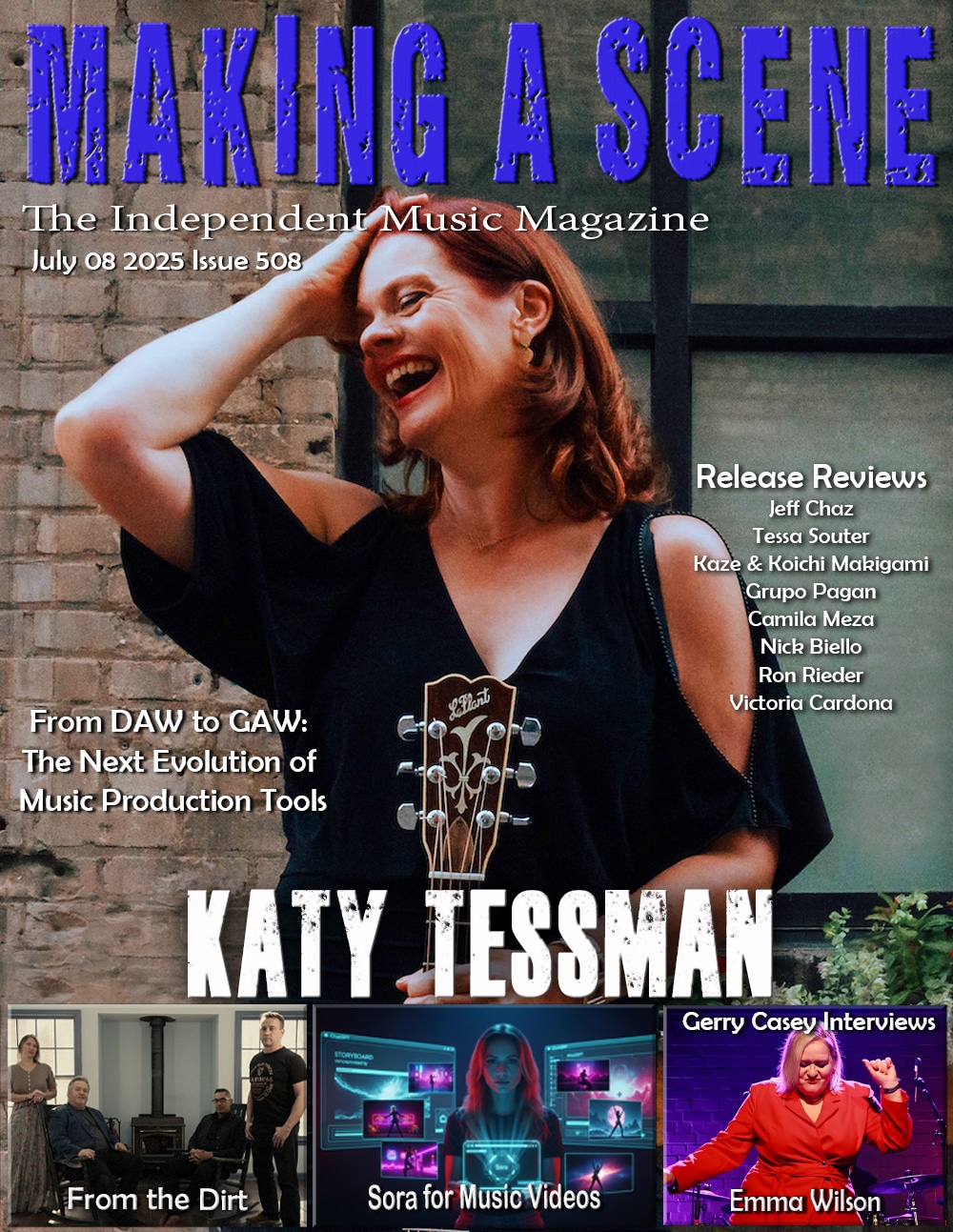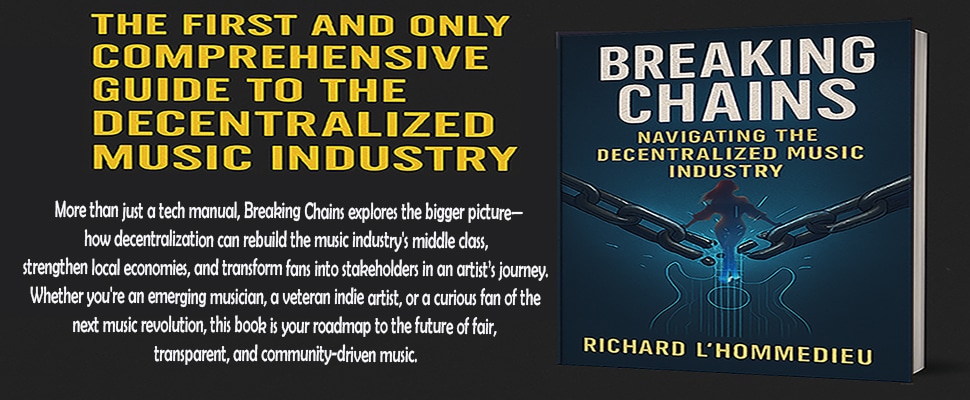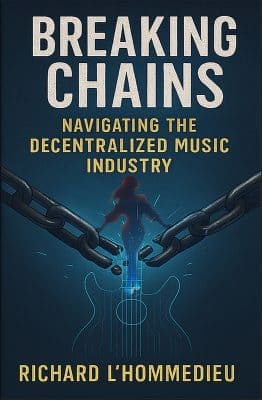Interview with a Pro – Gerry Roszak – Kondler & Associates Royalty Audit Team
Making a Scene Brings you an Interview with a Pro – Gerry Roszak of Kondler and Associates Royalty Audit Team
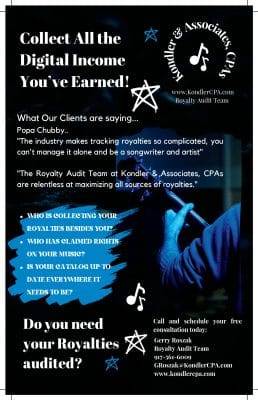 Introduction
Introduction
In the music industry, the traditional revenue streams for musicians and songwriters have undergone a significant transformation. With the rise of digital music platforms and streaming services, the way in which artists earn money has changed dramatically. It is essential for musicians and songwriters to understand the various revenue streams available to them to ensure they can monetize their work effectively. Administrating these revenue streams can get daunting for the indie artist, in fact I would venture to say that most indie artists have monies sitting out there uncollected they are unaware of. Gerry Roszak worked for over 20 years at ASCAP helping musicians get the money that is owed to them, and now has created a new company with the accountant firm Kondler and Associates “Royalty Audit Team” (917-561-6009) to find and retrieve ALL the monies an artist has earned with their songs
How Musicians Earn Money
Live Performances
Live performances have been a consistent revenue stream for musicians and songwriters for decades. While the pandemic has disrupted the way in which live performances take place, they remain a crucial income source. Live performances include concerts, festivals, and gigs. While the revenue generated from live performances can vary significantly, it is still a reliable way for artists to earn money.
Royalties
Royalties are payments made to musicians and songwriters for the use of their music. There are two types of royalties: performance royalties and mechanical royalties. Performance royalties are earned when a song is played on the radio, television, or in a public venue. Mechanical royalties, on the other hand, are earned when a song is sold as a physical or digital product, such as a CD or download.
The Songwriter and Publisher Royalties from Performance (Radio, Online, Streaming, live, etc) are collected by the Performance Rights Organizations (PROS) such as ASCAP, BMI and SESAC. The Mechanical portion of the songwriter and publisher royalties are collected and paid out through the Music Licensing Collective (MLC). On the other hand Mechanical royalties for non-interactive use for the Master Recording (Musician, Record Company, Session Musicians) are collect by Soundexchange.
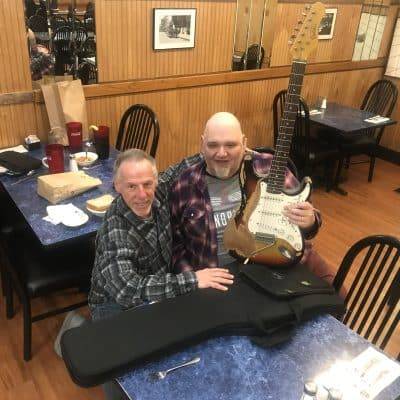 Streaming and Digital Downloads
Streaming and Digital Downloads
Streaming and digital downloads have quickly become one of the most significant sources of revenue for musicians and songwriters. Streaming services such as Spotify, Apple Music, and Tidal have revolutionized the way in which people consume music. There are two types of streaming services, Interactive and Non Interactive. Each of these has their own payment schedule unique to their type of streaming they provide.
- Interactive Streaming – Interactive streaming services allow users to select the specific songs or albums they want to listen to on-demand. Examples of interactive streaming services include Spotify, Apple Music, and Tidal. Because users have control over the music they listen to, interactive streaming is considered to be an interactive experience. With interactive streaming, royalties are paid out on a pro-rata basis. This means that the amount of royalties paid to an artist or songwriter is proportional to the number of streams their music receives in relation to the total number of streams on the platform. So if an artist’s songs make up 1% of all the streams on a platform, they will receive 1% of the royalties generated by the platform. This is collected and paid through your digital aggregator, such as Tunecore, distrokid, CDBaby, etc.
- Non-Interactive Streaming – Non-interactive streaming, on the other hand, is more like traditional radio broadcasting. Platforms like Pandora and SiriusXM offer non-interactive streaming, where users can select a station or playlist but have no control over the specific songs that are played. Because users do not have control over the music they listen to, non-interactive streaming is considered to be a non-interactive experience. With non-interactive streaming, royalties are paid out on a per-play basis. This means that each time a song is played, the artist or songwriter receives a set amount of royalties. The amount of royalties paid out per play varies depending on the platform and the specific licensing agreements they have in place. These Royalties are collected and paid through the Music Licensing Collective (MLC) for songwriters and publishers and Sound exchange for artists.
Who Collects Monies for Musicians and Songwriters
What is MLC?
The MLC is a non-profit organization created by the Music Modernization Act of 2018. Its primary purpose is to manage the mechanical licenses for streaming and digital downloads of musical compositions. This means that the MLC is responsible for collecting and distributing royalties to songwriters, composers, and publishers when their music is streamed or downloaded on services like Spotify, Apple Music, and Amazon Music.
One of the key differences between MLC and other music licensing organizations is that the MLC is owned and operated by the music industry itself. This means that artists and songwriters have a direct say in how their royalties are collected and distributed.
What is SoundExchange?
SoundExchange, on the other hand, is a non-profit organization that collects and distributes digital performance royalties for sound recordings. This means that SoundExchange collects royalties for the use of a particular recording when it is played on digital radio services like Pandora and SiriusXM.
Unlike the MLC, SoundExchange is not owned or operated by the music industry. Instead, it was created by Congress in 2000 as a way to ensure that artists and rights holders are fairly compensated for the use of their sound recordings on digital platforms.
What Are Performance Rights Organizations?
Performance Rights Organizations (PROs) play a vital role in the music industry. These companies serve as intermediaries between songwriters, composers, and music publishers, on the one hand, and businesses that use their music, on the other. PROs are responsible for collecting and distributing royalties on behalf of their clients. They do this by closely monitoring the public performance of their clients’ music, and by collecting fees from businesses that use that music in their operations, such as radio stations, TV networks, and streaming services.
Overall, Performance Rights Organizations are critical players in the music industry. They provide essential services that are crucial to the success and livelihoods of music creators. By monitoring the public performance of music and collecting royalties on behalf of their clients, PROs help to ensure that music creators are fairly compensated for their work, and that the industry as a whole remains vibrant and thriving.
Conclusion
In conclusion, the music industry is continually evolving, and musicians and songwriters need to adapt to these changes to ensure they can earn a living from their work. Live performances, royalties, and streaming and digital downloads are the most significant sources of revenue for musicians and songwriters. However, there are also other revenue streams available, such as merchandise sales and licensing deals. By exploring these different options, artists can create a more sustainable and diverse income stream. Most Indie artists, I would venture to say, are leaving a substantial amount of money uncollected and the Gerry Roszak and his Royalty Audit Team at Kondler and Associates CPA Can help (917-571-6009) not only finding money you are owed, but they can help administer and actively collect those funds!
Watch this exclusive interview with Popa Chubby over the difficulties with unpaid royalties…..until now! Gerry Roszak, a 20-year veteran in the music…
Buy Us a Cup of Coffee!
Join the movement in supporting Making a Scene, the premier independent resource for both emerging musicians and the dedicated fans who champion them.
We showcase this vibrant community that celebrates the raw talent and creative spirit driving the music industry forward. From insightful articles and in-depth interviews to exclusive content and insider tips, Making a Scene empowers artists to thrive and fans to discover their next favorite sound.
Together, let’s amplify the voices of independent musicians and forge unforgettable connections through the power of music
Make a one-time donation
Make a monthly donation
Make a yearly donation
Buy us a cup of Coffee!
Or enter a custom amount
Your contribution is appreciated.
Your contribution is appreciated.
Your contribution is appreciated.
DonateDonate monthlyDonate yearlyYou can donate directly through Paypal!
Subscribe to Our Newsletter
Order the New Book From Making a Scene
Breaking Chains – Navigating the Decentralized Music Industry
Breaking Chains is a groundbreaking guide for independent musicians ready to take control of their careers in the rapidly evolving world of decentralized music. From blockchain-powered royalties to NFTs, DAOs, and smart contracts, this book breaks down complex Web3 concepts into practical strategies that help artists earn more, connect directly with fans, and retain creative freedom. With real-world examples, platform recommendations, and step-by-step guidance, it empowers musicians to bypass traditional gatekeepers and build sustainable careers on their own terms.
More than just a tech manual, Breaking Chains explores the bigger picture—how decentralization can rebuild the music industry’s middle class, strengthen local economies, and transform fans into stakeholders in an artist’s journey. Whether you’re an emerging musician, a veteran indie artist, or a curious fan of the next music revolution, this book is your roadmap to the future of fair, transparent, and community-driven music.
Get your Limited Edition Signed and Numbered (Only 50 copies Available) Free Shipping Included
Discover more from Making A Scene!
Subscribe to get the latest posts sent to your email.
